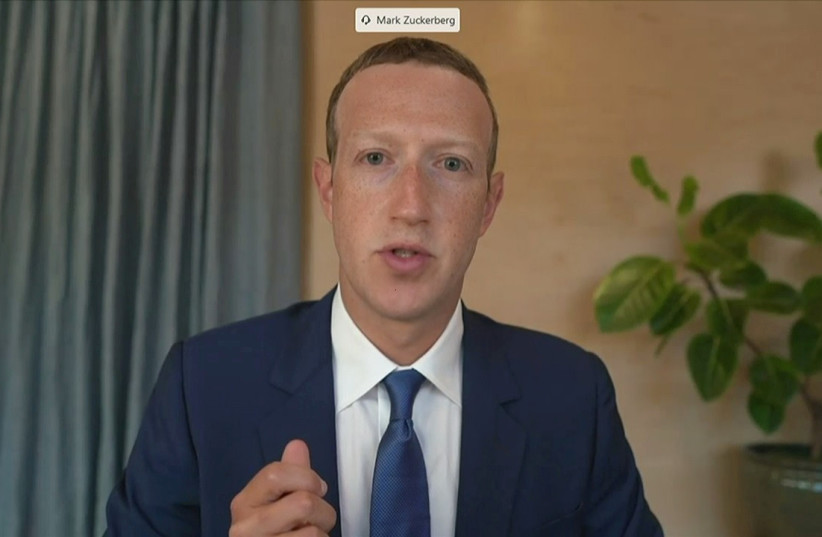How can social-media users take back control of their digital lives? A series of crises involving Facebook and its subsidiaries Instagram and WhatsApp have once again put the spotlight on the dangers the social-media giant poses to society and what can be done to prevent further damages.
On Sunday, a former Facebook employee took to the CBS news show 60 Minutes to share revelations about how the company knew it was “tearing our societies apart” as it prioritized profits over safety and social values. Then, a day later, Facebook, Instagram and WhatsApp went down for six hours due to a technical glitch that made it impossible to send messages, make calls, share information and do other essential tasks that have become part of modern life.
Facebook’s aggressive business practices have been criticized for years, and calls for change have been growing louder. But the stronger the pushback gets against Facebook, the less clear it becomes what, if anything, can be done.
“I don’t think that the only option is for people to leave Facebook,” said Dr. Tehilla Shwartz Altshuler, a senior fellow at the Israel Democracy Institute. “Facebook could easily change its algorithms to encourage positive benefits to society, instead of increasing depression among teenage girls and spreading misinformation. The question is what incentive Facebook has to change.”
Facebook’s algorithm shows users the content that is likeliest to keep them engaged and on the site in order to maximize ad revenues. Studies consistently find that hateful, divisive and lewd posts generate the strongest emotions among users – and earn the company the most money.
“There are two factors that could change the way Facebook operates,” Shwartz Altshuler said. “One is financial-market forces. Facebook’s stock has continued to grow throughout the years, despite Senate hearings, the Cambridge Analytica data scandal, fines in the EU and US for privacy infringement and anti-competitive practices, and being blamed for foreign election interference, increasing social divides, enabling vaccine denial and much more.
“The company knows that its stock is so well supported on the financial markets that nothing can bring it down. If the SEC would take action against it, for example, then I think the company would act differently.”
The second tool available is government regulation, Shwartz Altshuler said.
“After the 2016 election, when it was clear that Facebook was being used as a primary tool for spreading misinformation, it started to become clear that allowing the big tech giants to remain unregulated was causing more harm than good,” she said. “It took some to understand how harmful social media can be, and we are now at a point where regulation is needed.
“Platforms must be required to explain why they need to gather certain data, show certain content, or remove a user’s posts. Users need an easy way to block harmful content and appeal decisions. We need to strengthen and enforce consumer protection and privacy regulations and antitrust laws. We need to talk about how social media platforms are taxed and how they are harming traditional media markets.”
But Shwartz Altshuler is optimistic that those changes will come.
“It takes a lot of time to create legislation, especially in democracies that are concerned about censorship, and there are very powerful political forces that will have to be overcome,” she said. “Legislation won’t come quickly, but the EU has passed GDPR privacy regulations and is working on the Digital Services Act to address consumer protection online.
“In the meantime, we also have to promote digital education and literacy so that people will be aware of the challenges of social media and learn how to protect themselves.”

For most Facebook users, leaving the platform really isn’t an option, said Dr. Lior Tabansky, head of research and development at Tel Aviv University’s Blavatnik Interdisciplinary Cyber Research Center.
“There are alternative social-media platforms, but Facebook has successfully prevented anyone from posing a serious challenge, he said. “Once everyone in your network is using one platform, it is very difficult to move.”
“Signal, for example, is a messaging app that operates as a nonprofit organization dedicated to privacy,” he added. “They don’t collect data, and their whole orientation as a nonprofit is different than Facebook’s. But if you can’t find your friends there, it has little value.”
Tabansky believes US legislation is the only way to seriously deal with all of the challenges posed by social media. But he imagines another theoretical scenario in which global competition creates market pressures.
“The Internet economy is controlled mainly by the US, with some influence by the Chinese,” Tabansky said. “If China decided to try and compete with the US on social media, there would be more pressure on the platforms to improve how they operate.
“China is the only viable competitor, and WeChat, which is outlawed in the US but has more than 1.25 billion monthly users worldwide, is superior to Facebook in terms of technology and features offered. A situation where they would come in and change the rules of the game is unlikely but possible.”
If none of these scenarios are implemented, nothing will change, according to Assaf Shmueli, a social-media crisis expert.
“The only thing I am sure of is that Facebook will continue to do the things that are best for Facebook,” he said. “The good news is that at some point, Facebook will have to learn that what is good for it must be good for society as well.”
In the meantime, people will continue to check their social media accounts as soon as they wake up in the morning and to rely on them for comfort when they are bored, Shmueli said.
“People don’t know what to do when they can’t scroll their feed,” he said. “During the outage yesterday [Monday], I went and picked up my old guitar. It was wonderful.”
